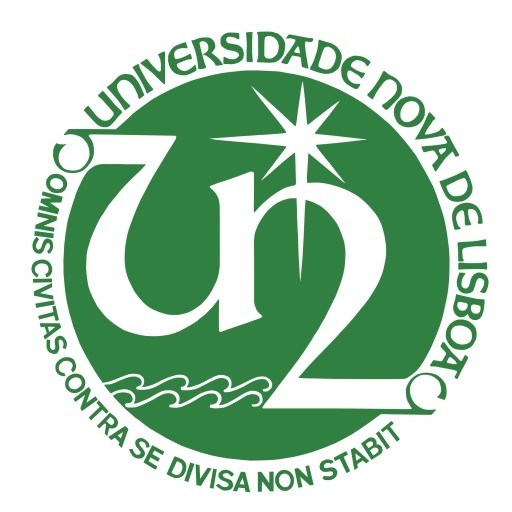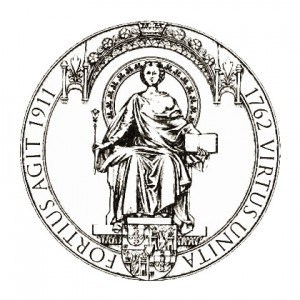The Bachelor's Degree in Electrical and Computer Engineering at NOVA University Lisbon offers a comprehensive education designed to prepare students for the dynamic fields of electrical and computer engineering. This programme combines fundamental theories with practical applications, ensuring graduates develop both technical expertise and problem-solving skills necessary for the evolving technological landscape. Throughout the course, students explore a wide range of subjects, including electrical circuits, digital systems, control systems, signal processing, telecommunications, computer architecture, software development, and embedded systems. The curriculum is structured to foster not only theoretical understanding but also hands-on experience through laboratory work, projects, and internships, enabling students to apply concepts in real-world scenarios. The programme promotes critical thinking, innovation, and teamwork, essential qualities for careers in industry, research, or entrepreneurship. Furthermore, students have access to advanced laboratories equipped with modern tools and technology, supported by experienced faculty with expertise in various domains of electrical and computer engineering. The university encourages active participation in research activities and industry collaborations, providing valuable opportunities for professional growth and networking. Graduates from this programme are well-equipped to undertake roles such as electrical engineers, system designers, software engineers, telecommunications specialists, and contribute to development in areas like renewable energy, automation, and information technology. The programme also provides a solid foundation for those considering postgraduate studies or research careers. With a multidisciplinary approach, the Bachelor's Degree in Electrical and Computer Engineering at NOVA University Lisbon aims to cultivate innovative, competent, and ethical professionals ready to meet current and future technological challenges.
The Electrical and Computer Engineering program at NOVA University Lisbon offers a comprehensive and interdisciplinary curriculum designed to prepare students for the rapidly evolving fields of electrical engineering and computer science. This program combines fundamental theoretical knowledge with practical skills, enabling graduates to innovate and excel in a variety of industries such as telecommunications, automation, renewable energy, robotics, and information technology.
Throughout the course, students are introduced to core topics including circuit analysis, digital systems, control systems, signals and systems, microprocessors, embedded systems, and telecommunications. The curriculum emphasizes the development of strong analytical skills, problem-solving abilities, and technical competence. Students also have the opportunity to explore specialized areas such as power systems, electromagnetic fields, instrumentation, and computer architecture.
The program integrates hands-on laboratory work, project-based learning, and teamwork to ensure students gain practical experience that aligns with current industry standards. Additionally, students are encouraged to participate in internships, research projects, and collaborations with industry partners, which facilitate real-world application of their knowledge and foster professional development.
The program emphasizes the importance of innovation and sustainability, encouraging students to develop solutions that address global challenges such as energy efficiency, environmental impact, and smart city development. Courses in entrepreneurship and management are also incorporated to prepare graduates for leadership roles or to pursue entrepreneurial endeavors within the technological sector.
Graduates from the Electrical and Computer Engineering program at NOVA University Lisbon are equipped with a solid foundation in engineering principles, advanced technical skills, and a proactive mindset. This enables them to adapt to technological advancements, pursue lifelong learning, and contribute significantly to society through technological innovation and sustainable development. The program's multidisciplinary approach ensures that students are well-prepared for diverse career opportunities or further postgraduate studies in academia or industry.
Admission to the Electrical and Computer Engineering program at NOVA University Lisbon typically requires candidates to hold a relevant secondary education diploma that grants access to higher education institutions, such as a high school diploma or an equivalent qualification recognized by Portuguese authorities. Applicants are generally expected to demonstrate a satisfactory level of proficiency in Portuguese and English, given the language of instruction and international mobility considerations. The university may also consider academic achievements in subjects such as mathematics, physics, and information technology, which are fundamental to the program.
In addition to the general admission requirements, prospective students might be asked to submit standardized test scores or participate in an entrance examination, depending on their country of origin or educational background. For international students, an assessment of their prior academic background and possibly an interview or motivation letter could be part of the selection process to ensure their preparedness for rigorous technical studies.
Applicants must demonstrate fundamental knowledge in calculus, algebra, physics, and basic computing principles as these are prerequisites for successful engagement with the curriculum. The program emphasizes both theoretical foundation and practical application, so a solid understanding of scientific and mathematical concepts is necessary. For non-native English speakers, proof of language proficiency through standardized tests such as TOEFL or IELTS may be required, with the minimum scores corresponding to the university’s standards for international students.
Once admitted, students are usually required to complete a set of core courses in electrical circuits, digital systems, electromagnetism, programming, control systems, signal processing, and embedded systems, among others. The program often encourages the development of practical skills via laboratory work, projects, and internships, thus requiring students to meet certain academic and practical standards throughout their studies.
Graduates are expected to possess qualities such as analytical thinking, problem-solving skills, technical competency, and the ability to work in multidisciplinary teams. The program also promotes continuous professional development and lifelong learning, essential for keeping pace with rapid technological advancements in electrical and computer engineering.
In summary, program requirements include a relevant secondary education diploma, language proficiency in Portuguese and English, demonstrated knowledge in mathematics, physics, and computing, successful completion of preliminary assessments or standardized tests if applicable, and a commitment to the program’s academic and practical standards. These prerequisites ensure students are well-prepared to undertake the challenging coursework and practical activities integral to the Electrical and Computer Engineering curriculum at NOVA University Lisbon.
The Electrical and Computer Engineering program at NOVA University Lisbon offers a variety of financing options for prospective students. Tuition fees are established annually by the university and can vary depending on the student's nationality, residency status, and the specific course load. For EU students, the annual tuition fee typically ranges around €1,200 to €1,500, while non-EU students may be charged higher fees, approximately €3,000 to €4,500 per year. These fees cover access to lectures, laboratory work, and digital resources necessary for comprehensive training in electrical and computer engineering.
In addition to tuition fees, students have access to numerous financial aid opportunities. Scholarships are available based on academic merit, financial need, or regional priority, and are administered directly by NOVA University Lisbon or through national scholarship programs such as the Portuguese State Scholarships. These scholarships often cover partial or full tuition fees and may include stipends to support living expenses. International students can also explore bilateral agreements between their home countries and Portugal, which occasionally include funding provisions for studying abroad.
Moreover, students can consider student loans offered by Portuguese banking institutions, which provide favorable repayment terms for enrolled students. The university collaborates with various financial institutions to facilitate access to such loans. Part-time work opportunities are also available for students within the university campus, enabling them to supplement their income while gaining valuable professional experience. The NOVA University Lisbon’s Career Services department assists students in finding internships and part-time employment in local companies, government agencies, and research centers.
For students enrolled in the Electrical and Computer Engineering program, the university also promotes innovation and entrepreneurship, offering support through startup incubators and innovation hubs. These initiatives sometimes provide funding or seed capital to students who develop viable projects during their studies. Overall, financing studies at NOVA University Lisbon is structured to ensure that capable students can access high-quality education regardless of their financial background. It is recommended that prospective students consult the official university website or contact the admissions office for the most up-to-date information regarding fees, scholarship opportunities, and financial aid procedures.
The Bachelor’s degree in Electrical and Computer Engineering at NOVA University Lisbon offers students a comprehensive education in the fundamental principles and applications of electrical and computer engineering. The program is designed to prepare graduates for a broad range of career opportunities in industries such as telecommunications, robotics, automation, energy systems, electronics, and information technology. The curriculum combines theoretical knowledge with practical skills, emphasizing the development of problem-solving abilities, innovation, and technical expertise. Students have access to modern laboratories and equipment, allowing them to gain hands-on experience in circuit design, embedded systems, digital and analog electronics, signal processing, and computer programming.
The program includes core courses in mathematics, physics, electrical circuits, digital systems, microprocessors, and control systems, providing a solid foundation essential for advanced studies and professional practice. As students progress, they can choose electives aligned with their areas of interest, such as power systems, telecommunications, cybersecurity, or embedded systems. The curriculum is regularly updated to reflect technological advances and industry demands, ensuring graduates are well-prepared for the evolving landscape of electrical and computer engineering.
NOVA University Lisbon emphasizes research and innovation, encouraging students to engage in projects, collaborations, and internships to bridge academic learning with real-world challenges. The faculty comprises experienced researchers and practitioners, contributing to a dynamic learning environment. Additionally, the program promotes international mobility and exchange programs, allowing students to gain global perspectives and enhance their educational experience.
Graduates of this program are equipped with the analytical skills, technical knowledge, and adaptability necessary to excel in various engineering roles or pursue further studies at the master's or doctoral levels. The degree’s multidisciplinary nature also opens pathways into emerging fields such as renewable energy, embedded systems, IoT, and smart technologies. Overall, the Electrical and Computer Engineering program at NOVA University Lisbon aims to develop highly competent professionals capable of contributing to technological innovation and sustainable development in Portugal and beyond.
(Approximately 2,100 characters)










